Fire ecologist to speak at SOU about community resilience to fire

NEWS RELEASE (available online at https://goo.gl/aBeLbn)
(Ashland, Ore.) — University of Washington fire ecologist Susan Prichard will discuss the need to include managed fire as a tool to ease the threat of catastrophic wildfires in a presentation on Thursday, May 4, in the Southern Oregon University Science Auditorium.
Her talk, “Becoming Fire Adapted: Community & Ecosystem Resilience to Fire,” will be hosted by SOU’s Environmental Science and Policy Program. Other sponsors of the event include the Ashland Forest Resiliency partners, the Fire Learning Network, Lomakatsi Restoration, the City of Ashland, the Nature Conservancy and the U.S. Forest Service. The event is free and open to the public.
Those who attend Thursday’s presentation, which will begin with a half-hour reception at 7 p.m., will see equipment used in controlled burns and learn how fire-adapted communities are making their neighborhoods more fire resistant.
Prichard, who earned her doctorate in ecosystem science at the University of Washington, works with the Forest Service’s Pacific Wildland Fire Sciences Laboratory in Seattle and lives in Washington’s Methow Valley, which has experienced large fires, pervasive smoke and property losses in recent summers.
She says that Native Americans in the Pacific Northwest regularly burned portions of their lands as recently as 150 years ago to improve safety, food production and forage for deer and elk. Prichard maintains that today’s communities need to embrace manageable fires – and put up with the smoke they produce – as they seek to avoid huge, uncontrollable wildfires.
In addition to her duties with the Forest Service wildfire laboratory, Prichard has served since 2003 as a research scientist with UW’s School of Environmental and Forest Sciences. She served as a research assistant for the five years prior to that with the university’s College of Forest Resources.
-SOU-
About Southern Oregon University
Southern Oregon University is a medium-sized campus that provides comprehensive educational opportunities with a strong focus on student success and intellectual creativity. Located in vibrant Ashland, Oregon, SOU remains committed to diversity and inclusion for all students on its environmentally sustainable campus. Connected learning programs taught by a host of exceptional faculty provide quality, innovative experiences for students. Visit sou.edu.


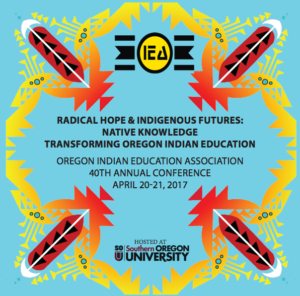 The conference, “Radical Hope and Indigenous Futures: Native Knowledge Transforming Oregon Indian Education,” is sponsored by SOU’s Native American Studies and affiliate programs. Registration for the full, two-day conference is $120 for the general public and $75 for students and elders, but SOU students will be admitted free to most of the event’s various presentations. Admission rates for portions of the conference are available on the OIEA website.
The conference, “Radical Hope and Indigenous Futures: Native Knowledge Transforming Oregon Indian Education,” is sponsored by SOU’s Native American Studies and affiliate programs. Registration for the full, two-day conference is $120 for the general public and $75 for students and elders, but SOU students will be admitted free to most of the event’s various presentations. Admission rates for portions of the conference are available on the OIEA website.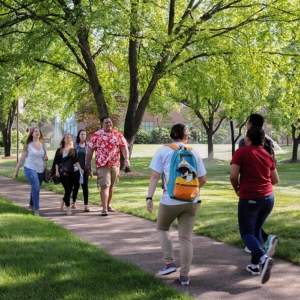 The virtual guided tour will include more than 100 different and unique trees – each with a physical identification plaque and a QR code for additional information. The day’s events will begin at 9 a.m. and continue until after 4 p.m.
The virtual guided tour will include more than 100 different and unique trees – each with a physical identification plaque and a QR code for additional information. The day’s events will begin at 9 a.m. and continue until after 4 p.m.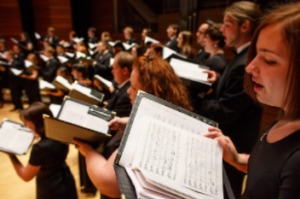 Undergraduate students can earn the new MBA in Arts Administration in as few as five years – four to complete a bachelor’s degree with a business minor in one of SOU’s arts programs, and a fifth year to complete the master’s in business administration degree. Arts students can alternatively complete their bachelor’s degrees without the business minor, then move on to a two-year MBA program.
Undergraduate students can earn the new MBA in Arts Administration in as few as five years – four to complete a bachelor’s degree with a business minor in one of SOU’s arts programs, and a fifth year to complete the master’s in business administration degree. Arts students can alternatively complete their bachelor’s degrees without the business minor, then move on to a two-year MBA program.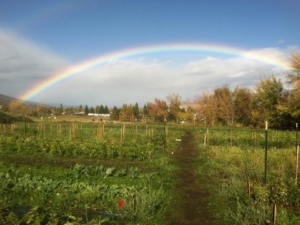 Events will include film screenings, an educational fair, an anti-pipeline rally and a presentation on pipelines and resistance. The celebration is being organized by Sustainability at SOU, a university-sponsored program of sustainability initiatives that focus on student involvement.
Events will include film screenings, an educational fair, an anti-pipeline rally and a presentation on pipelines and resistance. The celebration is being organized by Sustainability at SOU, a university-sponsored program of sustainability initiatives that focus on student involvement.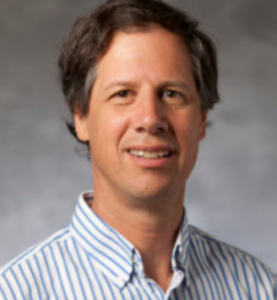 Salzman points out that people have fought over water sources since before biblical times, and water continues to make headlines – including crises over the past few years in Charleston, West Virginia; Toledo, Ohio; and Flint, Michigan. He will discuss issues with tap water safety, concerns about future water supplies and fears about contamination by terrorists.
Salzman points out that people have fought over water sources since before biblical times, and water continues to make headlines – including crises over the past few years in Charleston, West Virginia; Toledo, Ohio; and Flint, Michigan. He will discuss issues with tap water safety, concerns about future water supplies and fears about contamination by terrorists.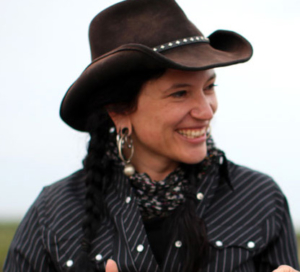 “My advice is to be curious, be brave, ask lots of questions and never pass up an opportunity to get your hands dirty,” Rose says.
“My advice is to be curious, be brave, ask lots of questions and never pass up an opportunity to get your hands dirty,” Rose says.